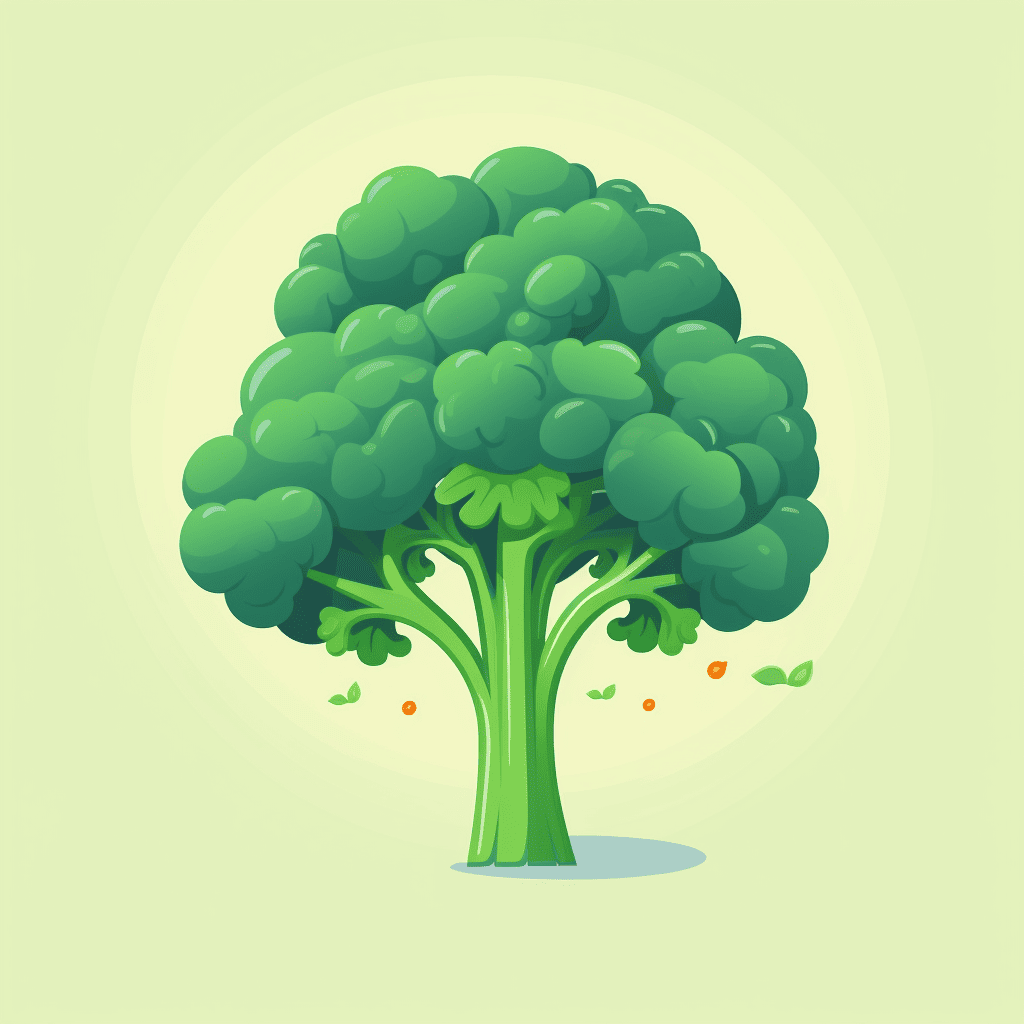You've probably heard the phrase "it's natural, so it must be good for you" more times than you can count. While it's a comforting thought, this line of reasoning isn't always as clear-cut as it seems.
An Appeal to Nature Fallacy happens when someone argues that something is good, better, or more authentic simply because it's natural, while brushing aside anything man-made as inferior or harmful.
Armed with the knowledge from this exploration, you'll be better equipped to critically evaluate claims in advertising, healthcare, science and social discussions.
What is an Appeal to Nature Fallacy?

Imagine you're walking down a grocery store aisle. You see two bottles of juice. One says "all-natural," and the other doesn't. You might think the "all-natural" one is better for you, right? That's the appeal to nature fallacy at work. It’s the mistaken belief that if something is natural, it must be good. On the flip side, if it’s man-made or artificial, it’s bad.
In a formal debate or argument, this fallacy occurs when someone uses the concept of "natural" as the main reason to prove a point. Fallacies are logical errors, usually in arguments, that people make which lead to inconsistent reasoning. They ignore other factors like efficiency, logic, morality, or health risks. This can be especially misleading when it comes to topics like medicine, food, or even lifestyle choices.
The tricky part is that the term "natural" is often vague. What does natural even mean? Is it something untouched by human hands? Or does it include things that humans have been doing for centuries, like cooking or farming? What even counts as "naturally occurring"?
The appeal to nature fallacy thrives on this confusion, making you think that natural is always best.
Other Names for This Fallacy:
- Naturalistic Fallacy
- Argumentum ad Naturam
Similar Logical Fallacies:
- Straw Man: Misrepresenting an opponent's argument to make it easier to attack
- Tu quoque: Claiming that an opponent is guilty of the same fault they are being accused of.
- Genetic fallacy: Judging the value of an idea based on its origin.
- Slippery Slope: Arguing that one event will inevitably trigger a series of bad events
- Red Herring: Introducing an unrelated topic to divert attention from the subject under discussion
The term "Appeal to Nature Fallacy" doesn't have a single point of origin or meaning. Philosophers and thinkers have been discussing it for centuries, often under different names like "Naturalistic Fallacy." The concept has been particularly discussed in the realm of ethics, especially when distinguishing between what is "natural" and what is "right."
29 Examples
1) Diet Pills Example
"100% natural ingredients for weight loss without any side effects!"
Here, the Appeal to Nature Fallacy is used to make you think that because the pills are "natural," they must be effective and safe. But just because something is natural doesn't mean it's either safe or effective. After all, poison ivy is natural too, but you wouldn't want to ingest it.
2) Organic Food

"Organic foods are better for you because they are natural."
This statement disregards the fact that not all organic foods are nutrient-dense or low in calories. It also ignores the fact that many conventional foods can be just as healthy and nutritious.
3) Essential Oils

"Use essential oils to cure your cold; they're natural and better than over-the-counter medicines."
This example makes the assumption that because essential oils are natural, they must be more effective than synthetic medicines, which isn't always the case.
4) Vaccination Debate
"Some parents argue that it's better to build natural immunity rather than vaccinate."
Here, the fallacy is present when assuming natural immunity is always better than medically induced immunity. Arguments like "nature intended" reinforce this kind of thinking.
5) Herbal Remedies

"Herbal remedies are better than pharmaceuticals because they come from nature."
This ignores the fact that some herbal remedies can have serious side effects or interfere with other medications. Just like natural food, herbal medicine, or alternative medicine, does not necessarily have more natural properties.
6) Veganism
"Vegan diets are the most natural way to eat, so they're the best for human health."
The fallacy here is assuming that "natural" equates to "healthiest," disregarding the complexity of dietary needs. Not to mention that veganism isn't any more "natural" than omnivores or any other kind of diet. Meat is naturally occurring too, so eating meat should be just as "healthy" according to this argument.
7) Home Births
"Home births are better because they are natural."
This statement ignores the medical risks associated with home births, assuming that natural circumstances are inherently better. It's human nature to think we are morally good, and our concern for our children is a large part of how we decide to act.
8) Raw Diet
"A raw food diet is healthier because cooking destroys natural enzymes."
This argument ignores the fact that research shows that some foods are more nutritious when cooked and that cooking can kill harmful bacteria. Cooking does not necessarily mean there are food additives or that it's suddenly unnatural.
9) Gluten-Free Trend
"Gluten-free foods are better because they're closer to a natural diet."
Here, the fallacy lies in assuming that a gluten-free diet is inherently healthier, regardless of individual needs or sensitivities. While there are synthetic ones - types of bread, grains, etc - often the perceived naturalness is more important to most people than the actual natural order.
10) GMOs
"GMOs are bad because they're not natural."
This falls into the trap of assuming that anything genetically modified is harmful, disregarding scientific evidence to the contrary. Organic crops can be modified by breeding between different plants, so at what point do they become less natural things?
11) Cosmetics
"All-natural cosmetics are better for your skin."
Human beings assume that natural ingredients are automatically safer or more effective for skincare, which is not always true.
12) Solar Power

"Solar power is the best form of energy because it's natural."
While solar power has its advantages, this statement ignores other factors like efficiency, cost, and the process of manufacturing the solar panels.
13) Paleo Diet
"The Paleo diet is the healthiest because it's what our ancestors ate."
Here, the fallacy assumes that ancestral eating habits are naturally better, despite changes in lifestyle and available foods. It's also wrong to claim all humans ate the same things - really, they ate whatever was available in the environment they were in.
14) Bottled Water
"Bottled spring water is better than tap water because it's natural."
This ignores that tap water is often just as safe and far more eco-friendly. It's a weird conclusion that something in plastic - an obvious chemical creation - is somehow more natural than something directly from the ground.
15) Exercise
"Outdoor exercise is better for you because it's natural."
While outdoor exercise can be enjoyable, this doesn't make it inherently better than indoor exercise.
16) Bamboo Products
"Bamboo products are better because they're natural."
This argument doesn't consider the environmental cost of producing and shipping bamboo products.
17) Pet Food
"All-natural pet food is better for your animals."
Like with human food, the term "natural" doesn't automatically make pet food healthier or safer. Natural foods often carry disease, even in trace amounts, that could be worse than the supposedly "unnatural things".
18) Homeopathic Medicine
"Homeopathic treatments work better because they're natural."
The fallacy here ignores that many homeopathic remedies have not been scientifically proven to be effective.
19) Wooden Toys
"Wooden toys are better for children because they are natural."
This disregards the fact that plastic toys can be just as safe and functional as natural ones.
20) Farm-to-Table
"Farm-to-table food is healthier because it’s natural."
This overlooks other factors like how the food was grown and whether it's actually more nutritious.
21) Leather Goods
"Leather products are better because they're natural."
This argument ignores ethical and environmental concerns frequently associated with leather production.
22) Handmade Soap
"Handmade soap is better for you because it's natural."
While handmade soaps can be high-quality, being "natural" doesn't automatically make them better.
23) Natural Disasters
"Natural disasters are just Earth's way of balancing itself out."
This uses the appeal to nature fallacy to justify the destructive forces of natural disasters.
24) Digital Detox
"Taking a digital detox is good because living without technology is more natural."
While there may be benefits to reducing screen time, the assumption that it's better because it's "natural" is flawed.
25) Composting
"Composting is the best waste management method because it's natural."
While composting has benefits, this statement ignores other effective waste management options.
26) Honey as a Sweetener
"Honey is better than sugar because it's natural."
This assumes that honey is healthier than sugar, simply because it's natural, disregarding their similar impact on blood sugar levels.
27) Acupuncture
"Acupuncture is a better treatment because it's natural."
The fallacy here is assuming that because acupuncture doesn't involve drugs, it's automatically better.
28) Marriage Norms
"Marriage between a man and a woman is natural, so it's the best form of union."
This appeal to nature fallacy ignores the complexities of human relationships and love. Not to mention that marriage is a societal construct.
29) Sleeping Habits
"Sleeping on the ground is better because it's natural."
While sleeping closer to the ground might have some benefits, the idea that it's better simply because it's "natural" is an example of this fallacy.
The Psychological Mechanisms Behind It
The Appeal to Nature Fallacy taps into a deeply ingrained human instinct: the belief that natural things are inherently pure, simple, or good. It plays on our cognitive biases, where our brain takes shortcuts to make quick decisions.
This is known as heuristic thinking, a mental shortcut that allows people to solve problems and make judgments quickly. When faced with countless choices and overwhelming information, it's easier to rely on the "natural equals good" formula as a quick guide.
Interestingly, this fallacy also leverages the power of nostalgia and the romanticizing of the past. It preys on the idea that things were better "back in the day," before modern technologies and synthetic materials came along.
Therefore, if something is labeled as natural, it often triggers a sense of comfort or a return to a perceived simpler, purer time. Understanding the psychological tricks that this fallacy uses can help you become more aware of when you're falling into its trap.
The Impact of Appeal to Nature
The impact of the Appeal to Nature Fallacy can be far-reaching and affects various areas of life, from consumer choices to public policy.
For instance, it can lead people to make less-than-optimal health decisions, such as choosing unproven "natural" remedies over evidence-based medicine. This can have serious consequences, sometimes delaying proper medical treatment and causing harm.
In the consumer world, this fallacy often drives up the prices of "all-natural" or "organic" products, capitalizing on the belief that they are inherently better. This can make essential goods less accessible for those on a budget, reinforcing socioeconomic disparities.
The fallacy doesn't just influence individual choices; it also shapes societal attitudes and can drive public opinion on important issues like healthcare, energy policy, and environmental conservation.
How to Identify and Counter It
Identifying the Appeal to Nature Fallacy often involves a two-step process: first recognizing the emotional pull of the "natural equals good" argument and then critically evaluating the evidence or lack thereof.
Ask yourself, "Is this product or idea being promoted as better than alternative, solely because it's natural? Are there any objective, scientific reasons to support this claim?"
Countering this fallacy means challenging the premise that natural is automatically better. This can involve educating yourself and others about the complexities and nuances that the term "natural" can involve.
Look for credible sources, consult experts, and weigh the pros and cons before making a decision. By adopting a more critical thinking mindset, you'll become better equipped to make more informed choices, free from the misleading allure of the "natural equals good" equation.
